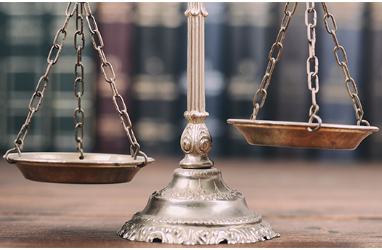
The U.S. has always had a tempestuous relationship with the idea of due process.
Obviously, some process requirement is necessary.
You can’t actually have a “nation of laws” if the operation of those laws is left entirely up to the State.
The laws must be public, so everyone knows what they are, and the operation of the laws must be public, so everyone can see that they are enforced correctly and universally.
This is why we require that the law be published and its text available to everyone, and that court proceedings be open to the public.
(And also why bystanders have a right to record any police activity.)
But it’s a really vague requirement.
It’s frankly tautological; having a right to “due process” literally just means you have a right to the process to which you have a right.
So, naturally, the government has built fences and exclusions around its formal idea of what due process means, creating ideas like prosecutorial discretion, qualified and sovereign immunity and standing to manage who has access to what processes and who is subject to them.
These limits on what process counts as “due” have accreted and grown over time and are now so convoluted and extensive that the due process requirement has grown effectively useless.
And the place where it has grown most useless is in border and immigration enforcement.
Within the 100 mile “border zone” the due process requirement is effectively toothless, with many of the weak protections we’re accustomed to being officially suspended.
And 2/3 of the U.S. population lives inside that zone.
This was already a problem, but given Trump 2’s obsession with suppressing both immigration and dissent it’s being taken to some very unsavory extremes.
We need to re-set our idea of what “due process” means.
This is probably something that just has to be done occasionally, since rules, limitations and exclusions naturally build up over time in any bureaucracy.
So, we need a constitutional re-set of due process to meaning:
- All law applies equally to all persons.
- All persons may petition the courts to enforce any law.
- All operations of the law must be public.
This change won’t solve anything by itself, but it’d give us back an important tool that we’ll need to fix the rest of it.
- Bad Politics: Welcome To The Jungle Primary - 2026-02-16
- AIpocalypse: Generative AI Cannot Be Reliable - 2026-02-13
- C’mon Democrats: Zero Votes For Fascism - 2026-02-11
- Tax Everyone: No More Religious Exemptions
- You Should Read This: We Should Talk About The Morality of Political Violence
- “History And Tradition”: If We’re Changing Legal Interpretation, Let’s Not Make It Worse
- Framing For Goblins: Say Your Right Words
- Self-Interesting: Fairness And Equality Are Rational Choices

One thought on “Due Process: No, I Don’t Trust you Bro”